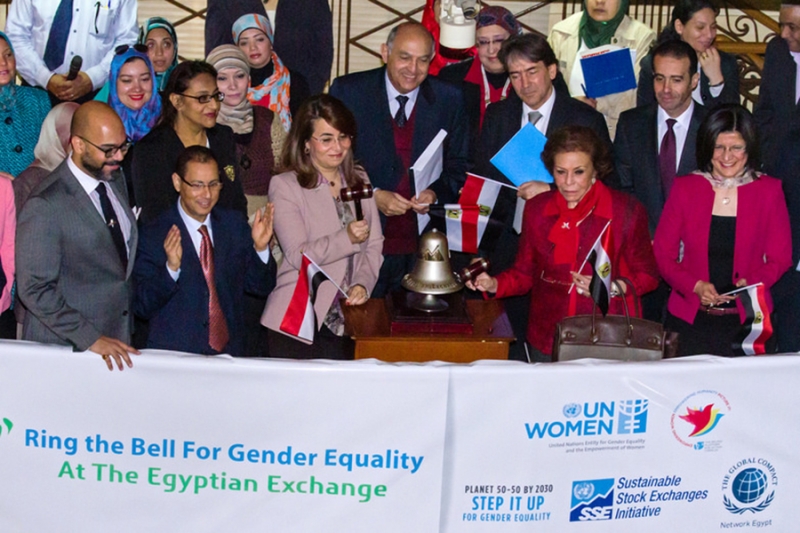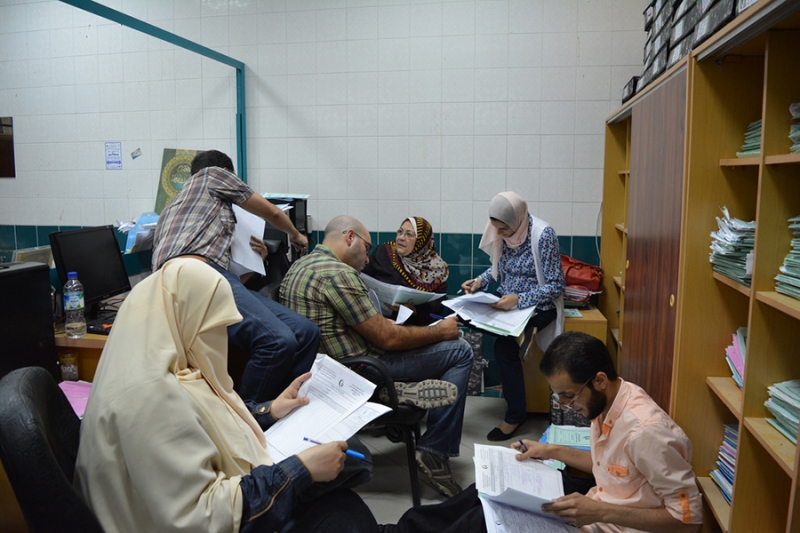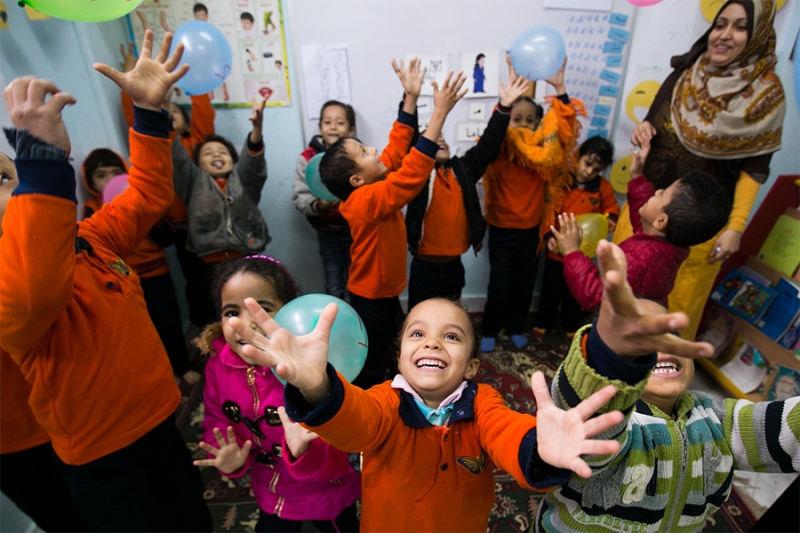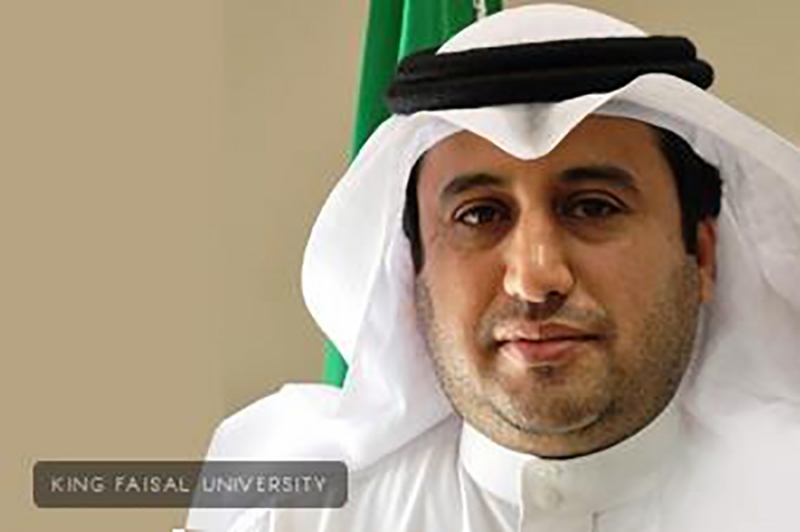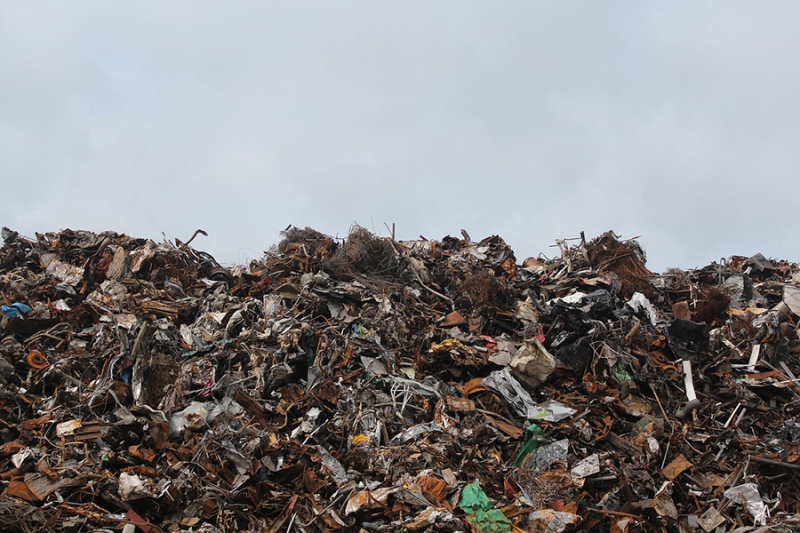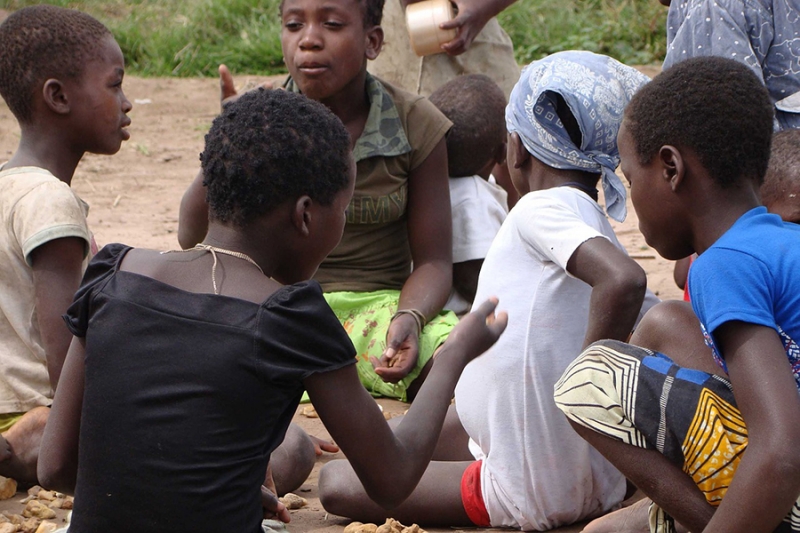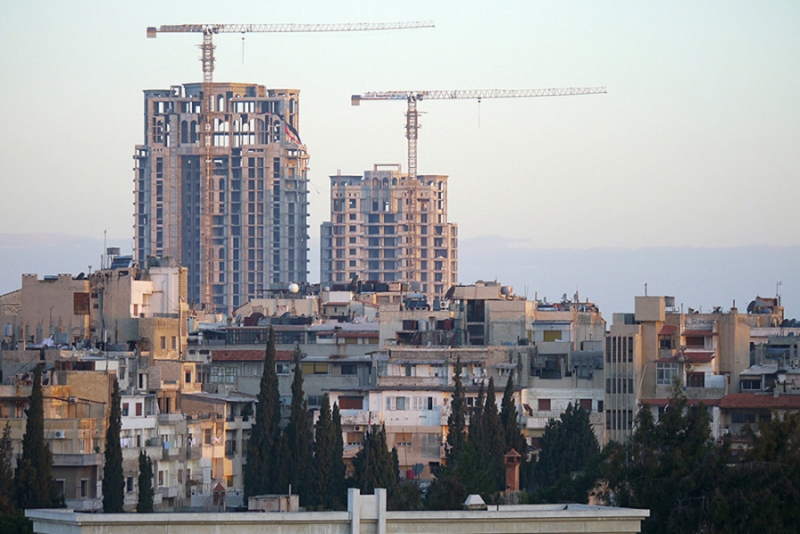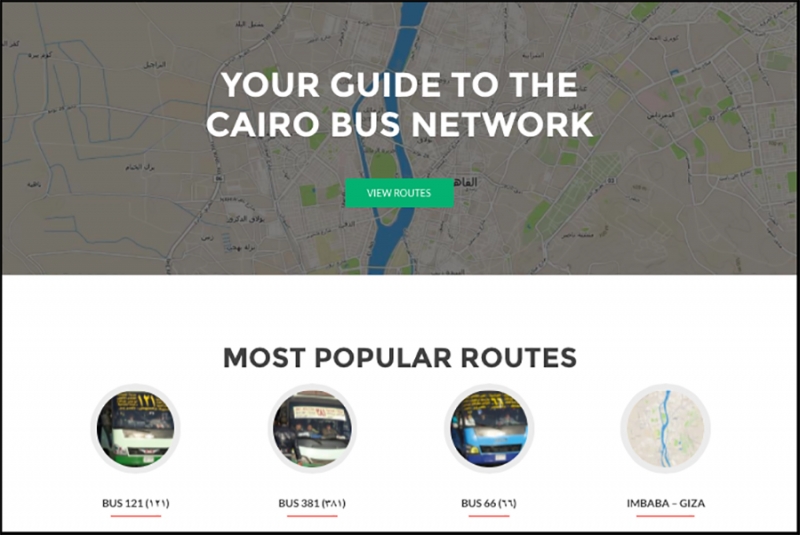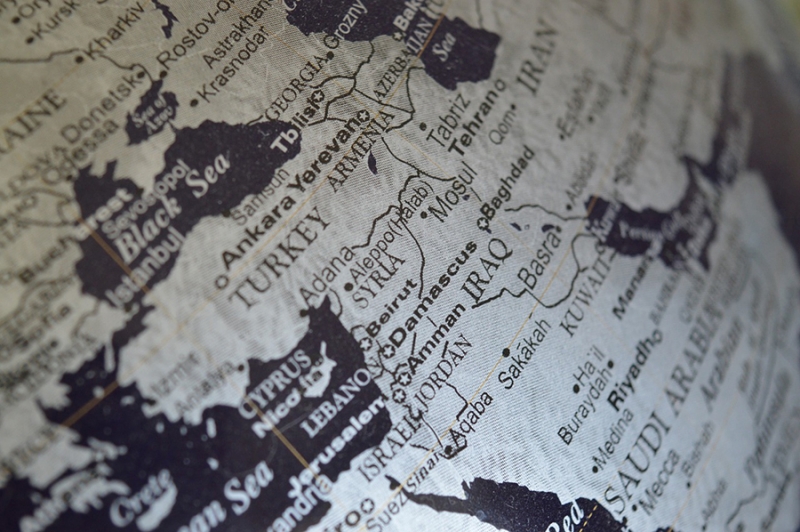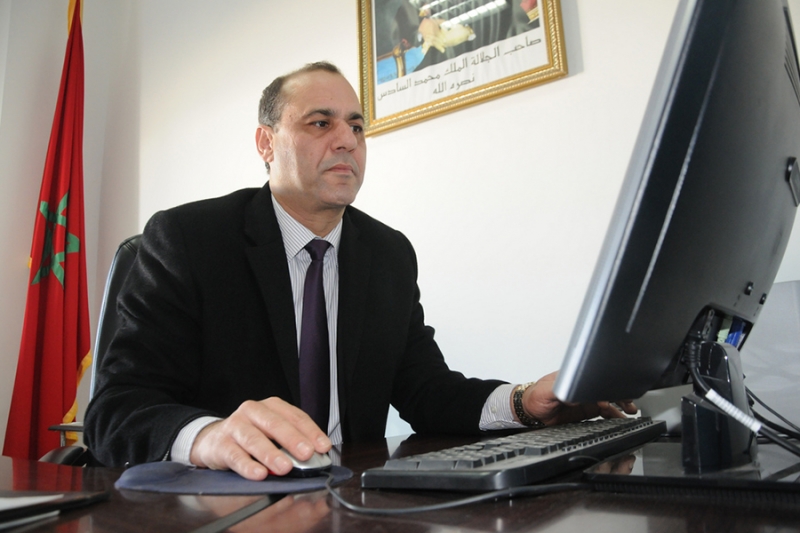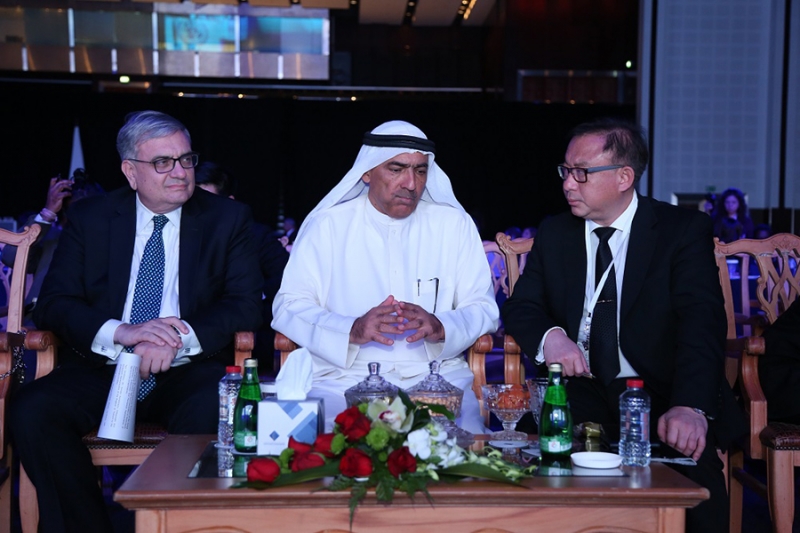 SSDA Solutions
South-South Development Academy
SSDA Solutions
South-South Development Academy
Mapping South-South Development Academy Solutions
Expert Exchange Mechanism Egypt
Geographic focus: E-9 countries (the nine most heavily populated developing countries, which are: Bangladesh, Brazil, China, Egypt, India, Indonesia, Mexico, Nigeria, Pakistan)
Thematic focus areas/sectors/practices supported by the mechanism:
The focus of the mechanism is the 6 Education for All (EFA) goals. Each year focuses on a specific theme related to one of the goals.
Steps/stages in practical application of the mechanism:
Within the follow-up activities for the E9 initiative and following the Seventh E-9 Ministerial Review Meeting on Education for All, Bali, March 2008, a study mission for a delegation of Nigerian Ministry of Education senior officials was endorsed by the Egyptian Ministry of Education and took place in July of 2008 under the theme of `Improvement of Teachers` Education and Training as a Focus of Education`.
The overarching aim was strengthening bilateral cooperation between Egypt and Nigeria while sharing best practices, lessons learned and success stories in the field of the use of information and communication technology in teacher training and education.
Objectives of the mission included:
- Exposing Nigerian delegates to the Egyptian experience in use of video conferencing for training and other innovations in teacher training.
- Familiarizing Nigerian delegation with the training center setting through visit to training centers.
Results to Date:
Nigeria: The results of the mission included:
- Bilateral cooperation between Egypt and Nigeria strengthened
- Nigerian delegate's capacities built through exposure to innovations in the field of teacher training with particular emphasis on video conferencing and websites preparations.
- Nigerian delegates familiarized with the training centre setting.
Focal Point and Contact:
Ghada Gholam
Education Officer
UNESCO
8 Abdel Rahman Fahmy Street, Garden City, Cairo, Egypt
Tel: +2-02-27943036
Email: This email address is being protected from spambots. You need JavaScript enabled to view it.
The initiative was designed as a multi-country-pilot initiative aiming to economically and socially empower women living and/or affected by Human Immunity Virus (HIV) in Arab States through micro-lending based Income Generating Activities (IGAs), Leadership and Vocational Training.
In the context of HIV, the combination of women`s lower social status, including lack of access to education and information, and their limited ability to control decisions about their lives has made them increasingly vulnerable to infection in many countries, including in the Arab region.
According to UNICEF women and girls represented 2/3 of the people living with HIV (PLWH) aged 15-24 in 2009 and it is estimated that 80% of women living with HIV in the Arab region have been infected within the bond of marriage. The Arab region is the second lowest region in the world on the Gender Empowerment Measurement (GEM), reflecting the vulnerable situation that women face when it comes to HIV infection and AIDS related stigma.
The Karama initiative is implemented through the following pathways:
- No one `fits all model` - Solution `profile and maturity` depend on country context (e.g in Algeria, initiative aligned with National Strategic Plan of Fight Against HIV/Aids, which underscores microcredit for PLWH)
- National-Local Ownership: Importance of strong local actors/CSOs with deep knowledge of community, people needs, challenges and opportunities: In Egypt, WHIA (Women Health Improvement Association) was able to explore the integration of PLWH into its services nation-wide.
- PLWH Participation and Leadership - Trust-building (CSOs/PLWH) - Some partner CSOs in Yemen and Djibouti are run by PLWH
- Integrated approaches: combining micro-lending/IGAs with vocational/business/project management training, psycho-sociological support, access to treatment-health and other services (e.g in Algeria and Lebanon)
- Networking and broad based Partnerships (CSOs, Government (national/local), Private Sector, and other Development Partners): in Algeria, El Hayet partners with the Ministries of Health, of Solidarity, of Vocational Training and the national Agency of Microcredit).
Through regional knowledge exchange and workshops the initiative has mobilized the civil society (17 CSOs to date, both HIV thematic and non-HIV thematic) in addressing the special needs of PLWH, particularly women, in the region and thus, has contributed to challenging attitudes and perceptions about PLWH.
To empower PLWH economically and socially the initiative has provided micro-loans (200USD to 4000USD), vocational training, marketing campaigns and life-skills training that led to 300 micro-projects/IGAs being implemented. Although there are substantial differences between countries, 60% of beneficiaries of IGAs at regional level are women.
First implemented in Egypt, Djibouti and Yemen, nowadays the Karama initiative has reached over 1300 beneficiaries in various communities across 7 countries of the region, namely Egypt, Djibouti, Yemen, Tunisia, Algeria, Lebanon and Jordan.
The initiative has been instrumental in enhancing welfare of beneficiaries and affected families and, critically in reducing stigma, evident from improved family relationships and a powerful sense of integration within their communities.
Partners:
UNDP, UN Women, other partners to ensure cross-fertilization of knowledge and experience among participating countries and CSO partners
Contact details:
Nathalie Milbach
Poverty Practice Leader, UNDP Regional Center Cairo
Tel: +2 010 66558411
Email: This email address is being protected from spambots. You need JavaScript enabled to view it.
Alyaa Nabil,
Practice Associate, HIV Practice in the Arab States, UNDP Regional Center Cairo
Tel: +2 012 21634775
Email: This email address is being protected from spambots. You need JavaScript enabled to view it.
In Egypt, public education is not always affordable for poor families and insufficient to fully develop children. In 2010, a small group of young Egyptians started a fundraising initiative to reinstate financially underprivileged children in, an underprivileged neighborhood in Giza governorate, back to school. Shortly after, it turned into Educate Me, a non-profit foundation that aspires to redefine education in Egypt through developing and delivering a self-directed learning program for children that empowers them to pursue their dreams.
Educate Me’s has developed the learner-centered skills-based educational model that works on developing children’s knowledge skills and values. The model incorporates ‘global 21st century skills, values extracted from local communities, and standards from the Egyptian national educational system’ together and develops curricula for Children ages 4-12. The model is implemented directly in the form of preschools and primary community schools which Educate Me launched in underprivileged areas in Egypt where this model is tested and perfected and from which best practices are generated for replication on larger scale. Educate Me also builds the capacities of public school teachers through its professional development journey’s carried out in public schools across the country thus spreading our model and best practices on a wider scale.
Schoolchildren are empowered by skills and values they need to not only survive & grow in the 21st century but also to put them on the path towards self-actualization, thus children become:
- Aware of their identities, their beliefs and their desires and conscious of their potentials and limitations.
- Making choices that are aligned with that awareness, maximizing their potential and that of others.
- Taking action to fight for what they want and reflecting on what they have reached in their path towards fulfilling their potential and that of others.
The model was first implemented in Talbeya and later expanded to other schools in Cairo and Giza. In 2015, Educate Me took the first steps towards extending its unique educational model nationwide by establishing a community school as well as growing our teacher training arm to develop teachers in schools & educational facilities around Egypt.
The model received a number of awards; among them are Ashoka Innovation Network Challenge Award, December 2010 and King Abdullah II Award for Youth Innovation and Achievement, May 2013.
The Learning Model can be replicated and contextualized in other developing countries in need to build the all-inclusive educational system. Through incorporating 21st century skills, which are applicable to any educational system and needed by every child to be able to cope in today’s global world, with values extracted from local communities and the nation’s own literacy standards.
The model is also entirely belt on local resources and expertise, and is designed to be entirely run and lead by community members making it both cost-effective and sustainable.
Budget: the model is cost effective, relying primarily on resources from local communities, facilitators are hired and trained from communities where we operate, learning materials can be recycle and it only requires a safe and child friendly physical space from classrooms. Accordingly, the biggest cost items are space and human resources.
Contact details:
Address: 385, Ramsees St., Abbaseya, Cairo, Egypt
Contact person: Ms. Noor El-Tahan
Marketing & Partnerships Officer
Phone: (+20) 24677032
Email: This email address is being protected from spambots. You need JavaScript enabled to view it.
This email address is being protected from spambots. You need JavaScript enabled to view it.
The solution is made by and for vulnerable communities residing around or close to Natural and Biosphere reserves in Egypt, more specifically in New Valley (village of Bashandi) and the governorate of South Sinai (St. Catherine), to protect their culture and environment through improved quality of livelihood. The project is aimed to create market demand for creative and cultural art work as well as traditional local agro-food items such as herbs to maintain livelihoods of the communities and meet basic subsistence needs in light of current socio-economic instabilities.
With the support of MAWARED foundation for Sustainable Development which is a collaborative operating platform intended to assist local and vulnerable communities that have unique business ideas and an entrepreneurial vision and CREATE Team, a local group of young designers, which helps local communities to develop products and add innovative techniques and designs, Geo-Tourism has been adopted to assist these communities through the human livelihood approach:
- Re-directing the community away from generic and sporadic activities to foster multidimensional programmatic activities
- Towards integrated and inclusive value chain approach
- Promoting the 2 pronged inter-linked value chain approach:
- Agro-food
- Creative industries vs. handy-crafts
- Endorsing sustainability and beyond.
Geo-Tourism trips are utilized as a propelling platform to inclusively engage targeted women and entrepreneurs penetrate markets, access to finance and market their products through 2 tracks:
- Track 1 (out-bound): travelling with Geo- tourists to select destinations such as Cyprus, Lebanon, and other potential Euro-Mediterranean countries of the region.
- Track 2 (in-bound): offering the opportunity to locally sell their products within their communities when Geo- tourists travel to Egypt.
The platform has provided the communities with access to markets that naturally appreciate cultural and traditional food items that needs to upgrade products to be in compliance with tastes and technical requirements of EU markets.
The project efforts have brought changes to communities lives and led to:
- Selling products through an open exhibition with direct sales of products of 1000 women and youth from the communities and income increase by 35%
- First Geo- tourist trip (in-coming): January 14, 2013 trip to Bashandi, New Valley governorate with 74 Geo-Tourists and the Godfather of Geo-Tourism Jonathan Tourtellot
- Second Geo-tourist trip (out-coming): Sept 14, 2013 trip to Cyprus natural reserve with 80 Geo-Tourists including St. Catherine Association for Medicinal and Aromatic Herbs
- Establishing a supply chain and linking women entrepreneurs from St. Catherine, Sinai to market segments in Cyprus full access
- Initiating capacity building twinning programs with the creative and agro industries in Cyprus
- Higher value products have been developed by introducing new production techniques, design of new packaging and new branding campaigns. Product value added increased by more than 60% and prices increased by 50%.
The effort is being shared in knowledge and experience to encourage replication and scalability with similar countries from the South such as Lebanon, Tunisia and Yemen and supported by product quality control practices and experience from North Country Cyprus (Troodos Council) and YPM Business Consulting.
Partners:
Mawared Foundation (Egypt), CREATE designers Team (Egypt), local communities and local governments, UNIDO, UNESCO, Mayor of Plattres (Cyprus), , Arz El-Choouf Biosphere (Lebanon), Tunisia Ministry of Environment, Biosphere Network (Yemen), Troodos Council (Cyprus) and YPM Business Consulting
Contact details:
Egypt, Fifth Settlement, New Cairo
Mawared Foundation for Sustainable Development
Ms. Sina Bassam Hbous
Founding member and Resource and Community Mobilization Director
Phone: 01005300047
E-mail: This email address is being protected from spambots. You need JavaScript enabled to view it.
Owner: The National Center for Research on Date Palm - Ahsa
http://www.acsad.org/index.php/ar
Background:
Compost is a Latin word that means things are put together. A product comes from the decomposition of organic materials. The production of compost is considered one of the effective ways to transform agricultural waste into organic fertilizers which are of the highest quality organic fertilizer.
The National Center for Research on Date Palm - Ahsa has experienced the production of compost from the remnants of palm trees in the center fields to take advantage of this waste as organic fertilizer and to disseminate this experience among farmers to benefit from the remnants of palm plantations instead of burning it causing environment pollution and losing of organic matter.
Project Objective:
Convert crop residue or fruit or vegetables or trees or animal wastes into organic fertilizer
The process of converting palm waste to organic fertilizer:
Convert crop residue or fruit or vegetables or trees or animal wastes into organic fertilizer is through microbial process. This process requires the availability of air, water and chemical elements and the appropriate temperature. This process depends on the activity of a combination of bacterial and fungal species and other microorganisms. Nitrogen is essential for the growth of micro-organisms while the carbon is the source of her energy so the ratio of carbon to nitrogen task. Where excess nitrogen ratio with increasing material and green is the ratio of carbon: nitrogen 30: 1 ratio is perfect and you also need the microbes to the center of where the water is considered humidity 40-60% typical ratio for the conversion process.
Stages of preparing compost waste using palm fronds:
- Materials used in the preparation of the heap:
- Fronds and other remnants of palm cut into small pieces by a special machine for cutting fronds.
- Organic fertilizer, preferably cows free of sand.
- Preparation of the heap method:
- Making a pile of two meters wide and the length of at least two meters high and a meter and a half meters.
- furnishings layer of palm remnants of a thickness of 15-20 cm added by a layer of manure in the same thickness, more layers will be added until reaches a meter and a half high.
- After the completion of the preparation of the pile, it should be covered to protect it from the sun. The cover is made of palm fronds or net shading or any other material available to keep the humidity inside the pile.
- The irrigated of the pile shall be though preparing irrigation network, or by using any other way of irrigation. Irrigation process must ensure the pile get a good amount of moisture to help in decomposing so that they are parallel in moisture and is not saturated and very dry so as to create anaerobic conditions within the pile. To confirm the moisture of the whole pile, touch the pile or take a sample of them by hand and ensure access to appropriate moisture.
- It is necessary to turn the pile almost every month to ensure the pile get good ventilation that helps microorganisms to analysis of organic materials.
Results and successes:
By using this way in producing Compost, we get a high quality of compost.
Qualities of a good compost:
- Homogeneous and friable.
- A dark brown color.
- Nitrogen to carbon ratio of between 1:15.
- A high proportion of nitrogen, phosphorus and ready Authority available to the plant.
- A high proportion of organic micro-organisms useful plant.
- Acceptable Alaptmus like odor
Contacts:
Director General of the Palm Research Center, dates Ahsa
Dr. Yousef bin Ahmed Al-Fuhaid
Work phone: 00966135301660
Email This email address is being protected from spambots. You need JavaScript enabled to view it.
The initiative was launched in 2012 to promote rural and community development through solid waste management, production of organic fertilizers that contribute to soil productivity and increased crop production.
The community-based solid waste management project in El Qatta village in the Governorate of Giza contributed to the reduction of municipal solid waste generated by households by encouraging the separation of waste and the production of organic fertilizers.
The project has resulted in creating new job opportunities, particularly among the youth (6 new jobs have been created), generating income for those involved and improving health and environmental conditions. Organic fertilizers replacing chemical fertilizers have contributed to increase of the soil fertility and crop productivity. The use of organic fertilizers has also contributed to reducing the use of water due to its increased water retaining capacity. The introduction of biogas units using animal manure to produce fuel for cooking and the production of compost is underway. The production of compost by vermi compost is also being introduced. The project is in the process of introducing roof gardening to provide basic foodstuff for consumption and for commercial purposes of villagers.
The initiative has raised awareness to the positive impacts of the project represented in generating income through the sale of separated waste and organic fertilizers.
With expansion of the project, which is expected to take place in 2014, additional jobs will be created at a relatively low investment cost.
The State Ministry of Environment of Egypt has expressed interest in the project and is aiming to replicate it as a model in other locations.
Partners: ILO, Association for Community and Environmental Development (ACED); Centre for Sustainable Development Solutions (CSDS).
Contact details:
107 Mirage City, Cairo, Egypt
Association for Community and Environmental Development (ACED), Centre for Sustainable Development Solutions (CSDS)
Hussein Abaza, Director
+2 01274442798
Email: This email address is being protected from spambots. You need JavaScript enabled to view it.
The Child-Friendly Community Initiative (CFCI) in the Sudan is a community-driven programme led by communities themselves and supported by the Government of the Sudan at the federal and states level and UNICEF. The solution was launched in 1993 then called the Child-Friendly Village Initiative (CFVI). The CFVI's strategy of organizing villages to take responsibility for planning and implementation of local development activities has proven to be an effective approach to improving the well-being of children and their mothers. This model has been evolved and became Child-Friendly Community Initiative since 2002.
CFCI is an integrated, cross-sectoral and community-based approach inclusive of local culture and customs and used to achieve sustainable improvements in local communities, especially in the lives of rural children and women in 9 states and targeted 2,328 most vulnerable communities in the most affected war areas. This solution provided basic services in Health, where health centers constructed in a number of communities, Nutrition provided to children, Education, classroom constructed and furnished. All activities have been successfully achieved. In the area of community empowerment, all communities have been trained and awareness was raised.
This approach enabled and empowered - through developed and strengthened human and institutional capacity- 70 localities & 1,600 communities to prevent and manage conflict; plan, implement, manage monitor and sustain basic social and economic services; CSOs and CBOs strengthened to engage in dialogue with the government so as to participate effectively in the design and implementation of recovery and reintegration programmes.
Owing to the solution the followings have been achieved:
- 100% of population in 150 communities, average of 525,000 people(estimated 3500/community) have access to agricultural and livelihood support;
- 50% of the community, average of 262,500 people benefited from natural resources conservation interventions and water harvesting interventions for agriculture and livestock;
- 75% of the communities, average of 420,000 m people benefited from farming (agriculture and livestock) inputs and extension services;
- 150 schools, average of 36,000 students(40 students/class and the school have 6 levels) benefited from school gardening and school feeding; and 300 vulnerable young people/youth benefited from income generation activities;
- one million people (23% of the population have access to improved drinking water sources expanded to reach;
- 15% of the population have access to improved sanitation facilities and 60% -to hygiene education;
- 60% of the population including, child and maternal health/nutrition care get access to primary health care services expanded to
- strengthened referral sites within the catchment areas;
- Community-based surveillance system;
- a network of community health promoters and functional drug revolving fund schemes;
- Access to quality and child-friendly basic education for one million children and same number retained through school feeding.
This model has encouraged the federal government to adopt this approach as the federal rural development policy for the whole country and attracted prominent donors such as the European Union to consider it as a mechanism and policy for rural development in the country.
The solution can be replicated in post-conflict countries and countries with remote areas where accessibility of basic needs is critical and lack of policies. Community participation and empowerment can be achieved through human development and institutional building, domestic resources mobilization and community empowerment confirm the sustainability of the provision and maintaining of services for the long term and as an exit strategy.
Partners: The Government of Sudan, local communities, UNICEF
Budget: Budget per one community for integrated development package (Health, Education, and water and community empowerment) is USD 30,000.
Since 2002, the government has invested an amount of USD 6.7million in the initiative, which is 23% of the whole expenditures, communities USD 5.6 million - 19%, UNICEF USD 5.8 million - 20% and other partners USD 10.8 million - 37%. Government and communities contributed by 42% from the total resources ($ 28.8 million).
Contact:
Mrs.Sawsan Omer Abulkilk
Director International Relations
Federal Governance Chamber, Khartoum Sudan
E-mail: This email address is being protected from spambots. You need JavaScript enabled to view it.
Cell phone:+249912959749
Thematic focus areas/sectors/practices supported by the solution:
Capacity Development - National and Sector Capacity Development Strategies; Poverty Reduction
Development challenge and key achievements:
- Current estimates suggest that about 2 million dwellings will be required in urban Iraq by 2016.
- Acute shortage of buildable land in urban areas and a near absence of formal housing finance.
- Incomplete legal and regulatory system for private sector investment in housing.
- Infrastructure backlogs and declining infrastructure service levels owing to inadequate maintenance.
- Many households cannot afford decent housing. There are no scaled-up programmes to make these individuals and their families potential consumers of housing in a market system.
- Undercapitalized construction sector dominated by low-producing public companies.
- Lack of established procedures for improving or redeveloping unplanned settlements.
To facilitate access to decent housing for all Iraqis:
“Decent Housing” is understood to afford an adequate amount of space, adequate protection from the elements, and access to basic infrastructure, social services, and employment areas.
- Increase efficiency in the production of housing.
- To increase the ability of the Government to address the needs of special groups and those unable to afford suitable housing.
- To improve the quality, including energy efficiency and environmental impacts, of new housing.
Key results:
A national housing policy document was endorsed by the cabinet of ministers. The document sets the roadmap for key strategies and future development within the housing sector in Iraq.
The comparative advantage of the solution:
A group of international experts with wide experience was mobilized to work on this assignment alongside national consultants from the government side.
Main partners:
- Ministry of Construction and Housing;
- Ministry of Municipalities; Amanat Baghdad and other stakeholder ministries.
Sustainability: The housing policy sets the road map for strengthening the housing sector in Iraq through creating an enabling environment for housing delivery through a set of policies suggested for each thematic area.
Replicability: The Iraq housing policy document has become an authority regarding principles followed for developing and resolving issues of the housing sector and formulating future strategies on the national, sub national and local levels in Iraq.
Lessons Learned: The policy calls for major reforms in all housing sub-sectors: land management, housing finance, etc. It also calls for an enabling role for the government institutions in the housing sector. The required changes will be challenging and much more difficult than physical planning and implementing of housing projects, especially in the early years of the policy implementation phase. Technical assistance in this respect is vital to ensure implementation of the policy.
Total Budget (USD): 320,000
Focal Point and Contact:
Maha Thabit
UN-HABITAT, IRAQ
PO Box 941864
4 Abdullah al Jazzar Street, Amman, 11194, Jordan
+96265924889 ext.110
Email: This email address is being protected from spambots. You need JavaScript enabled to view it.
Cairo Bus Routes, a new website map, was created and launched in the beginning of 2015 by expat Tristan Thomas residing in Cairo with the aim to provide free information available to the public on public transport in Cairo, Egypt.
Cairo Bus Routes is a free companion to help to travel quickly and cheaply around the capital city where the traffic is chaotic. With updated information and new routes added every week, it is a guide to the Cairene streets.
Cairo Bus Routes features English and Arabic bus numbers, published routes for all listed buses, detailed explanations of prices, etiquette, hand signals, kind of amenities could be found inside and more.
With the free service you can browse all available bus routes, where they stop and their bus numbers; there`s even images of what they look like. This is for both public buses as well as microbuses.
- 100% free and anyone can contribute.
- Free Content, meaning you are free to use and copy it (CC BY-SA).
- Available on iTunes and Android.
The eventual aim of the solution is to have every public and private bus in Cairo documented and mapped and become the preeminent source of Cairo bus information.
Contact details:
Egypt, Cairo
Tristan Thomas
Email: This email address is being protected from spambots. You need JavaScript enabled to view it.
Development challenge and key achievements:
In August 2012 UNDP Iraq facilitated an important twinning initiative between the Planning Ministries of Jordan and Iraq. After several years of development, the Jordanian Government has implemented an aid information management system, similar to Iraq`s Integrated Development Management System. Through this initiative, the Jordan Ministry of Planning was able to share its valuable practical experience with its Iraqi counterpart. This is expected to enhance Iraqi Ministry`s knowledge of strategic national planning, including monitoring and reporting on progress towards implementation of the revised National Development Plan (2013 - 2017) for Iraq.
The comparative advantage of the solution:
For the Kurdistan Regional Government (KRG) of Iraq Budget Execution Support project, UNDP facilitated a partnership between the KRG and the Jordanian Institute for Public Administration (IPA). This body, the training arm of the Jordanian Government under its Ministry of Public Sector Development, maintains access to extensive expertise within Jordanian ministries and institutions. The project targets several line ministries and counterparts within the KRG that are involved in the preparation, execution and monitoring of the KRG`s public budget.
Many of the KRG`s line ministries and entities have limited technical capacity in the field of public financial management. The IPA is one of the few institutions in the region that can provide experts from several governmental entities, in order to transfer both theoretical and practical knowledge, particularly through using study tours as capacity development initiatives.
Transferability was ensured by addressing two barriers:
language and context. Language is a clear barrier in the capacity building of KRG institutions, and the Arabic language spoken by IPA trainers has been particularly useful in minimizing benefits lost due to language barriers. Additionally, partnering with an institution in the region ensured political and operational relevance, as the IPA understands the particular challenges faced by the KRG as the two bodies share similar regional conditions.
Most Recent Annual Budget (USD): 900,000
Total Budget (USD): 4,000,000
Focal Point and Contact:
Sudipto Mukerjee
Cluster Manager, Economic
Recovery and Poverty
Alleviation Unit
UNDP Iraq
Email: This email address is being protected from spambots. You need JavaScript enabled to view it.
Geographic focus: Lebanon, Syria and Morocco; with a view to expanding to other Mediterranean (Tunisia) and Sub-Saharan countries (Mauritania, Senegal and Gabon).
Thematic areas supported by the mechanism:
ART-ISI@MED is an operational platform designed to address the digital divide between the North and the South of the editerranean with areas of intervention at the local level: ICTs for strategic urban planning, economic development, and community empowerment.
Web link: http://web.undp.org/geneva/ART/isi_med/
For more information:
- Download: “Harnessing the Power and the Potential of ICT for Local Development: A Practical Handbook for Local Mediterranean Policy Makers”. It is the flagship ARTISI@ MED publication based on field experiences: and is also available in Arabic, English and French.
Results from the Field:
- Lebanon: A Geographic Information System Platform was established in Tripoli with the participation of the Municipalities of Tripoli and Malaga (Spain) and the collaboration of the Al Fayhaa Urban Community.
- Morocco: The city of Malaga was paired up with the cities of Oujda and Chefchaouen to provide software and training for the management of human resources, as well as an advanced document management system.
Throughout 2012 a series of ART-ISI@MED workshops took place in Morocco, Lebanon, and Senegal with the aim to building the capacities of local authorities and policy makers. Each one of those events coincided with the launching and/or presentation of the ART/ISI@MED Initiatives in the field.
Countries that benefited:
Lebanon (Tripoli Municipality) and Morocco (Oujda and Chefchaouen Municipalities) were selected to implement the first-phase pilot initiatives. During the second phase, results and best practices will be transferred to other Mediterranean and Sub-Saharan countries, like Mauritania (Kaédi Municipality).
Results to Date:
Through the ART-ISI@MED Initiative:
- The ICT solutions that were implemented contributed to the improvement of public administration and services’ delivery to citizens with encouraging results in increasing efficiency and fostering accountability of the public sector.
- The ICT solutions were developed in Arabic and are based on free software, which can be easily transferred from one Arab State to the other, economizing efforts and funds.
- More than 25.000 citizens benefited from the implementation of the ICT solutions in Tripoli, Oujda and Chefchaouen, and more that 30.000 will benefit in Kaédi.
- Innovative funding mechanisms were applied through the mobilization of a large network of decentralized cooperation (DC) partners and the harmonization at the local level by the use of common diagnoses, therefore reducing the cost of development aid.
- The potential of South-South and Triangular Cooperation and scaling-up of successful experiences is showcased in the transfer of the ICT project of Chefchaouen to Kaédi with the technical and financial support of Malaga through the ART-ISI@MED framework.
- There are a number of strategic partnerships and DC partners involved: DAECT, French Ministry of Foreign Affairs, Centre for Mediterranean Integration (CMI), Region of Champagne Ardennes, Region of Provence-Alpes-Côte d›Azur, Municipality of Marseilles, France and Municipality of Malaga, Spain.
Most Recent Annual Budget (USD): 128,240
Total Budget (USD): 400,400
Focal Point and Contact:
Kelly Papadaki
ART Initiative, UNDP Geneva
11-13 Chemin des Anémones, 1219 Châtelaine
Geneva, Switzerland
+41775042415
Email:This email address is being protected from spambots. You need JavaScript enabled to view it.
The AICEI was established in 2000 through a South-South Cooperation between the Bahraini Government and the Indian Government with technical and financial contribution of the Inter-Regional Center for Entrepreneurship & Investment Training (IRC)-India in order to:
- Contribute to the economic empowerment of youth and women regionally and internationally
- Unleash and stimulate the spirit of entrepreneurship through various awareness and support programs for women and youth
- Assist in developing eco-systems for the development of micro, small & medium enterprises (MSMEs) through capacity building programs, technology transfer, financing and incubation systems
- Share and disseminate best practices for the development of value added services to entrepreneurs through local support institutions
- Institutionalize business counseling and mentoring programs aimed at facilitating enterprise growth
- Developing linkages between financial institutions and entrepreneurship programs
- The establishment of business incubator systems that play a key role in the development and growth of MSMEs through a range of services offered.
The AICEI has contributed to conceptualization and development of the UNIDO Enterprise Development and Investment Promotion Program (EDIP) which aims to build the capacities of potential entrepreneurs and assist them in developing their own private businesses. The process is based on a holistic approach that combines building entrepreneurial capabilities with development of skills on enterprise planning, implementation and management.
The EDIP offers a multifaceted mechanism for addressing needs of business development by assisting to the development of start-up entrepreneurs (Enterprise Creation Program) and upgrading and expanding existing enterprises (Enterprise Growth Program) through the provision of value added services, tools and programs to potential entrepreneurs. The mechanism also facilitates and promotes domestic investment, job creation and a more diversified economy.
Due to the EDIP modality the AICEI has succeeded in achieving the followings:
- Unleashing entrepreneurship through creating awareness on entrepreneurship development in schools and universities.
- Establishment and functioning of an eco-system that nurtures economic empowerment and entrepreneurship development.
Currently the EDIP modality, through AICEI in Bahrain, is being implemented in 38 countries.
Partners:
- In Bahrain
- Ministry of Industry & Commerce; Ministry of Finance, Bahrain Development Bank, Bahrain Chamber of Commerce & Industry, Economic Development Board, Supreme Council for Women, Bahrain Businesswomen Society, SME Agency (Tamkeen), Microfinance bank (EBDAA)
- Regionally and Internationally
- Major line ministries in charge of economic development, MSME, Entrepreneurship, Development Funds (Islamic Development Bank, Kuwait Fund for Development, Arab Fund for Economic Development, Arab Gulf Program for Development-AGFUND, Arab Bank for Economic Development in Africa, Italian Government through Italian Cooperation, Centennial Fund - KSA, Khalifa Fund - UAE), World Eminent Chinese Businessmen Association, General Union of Arab Chambers of Commerce and Industry, Arab Union for Small Enterprises, Social Fund for Development in Egypt, Social Fund for Development in Yemen, Bank of Khartoum







